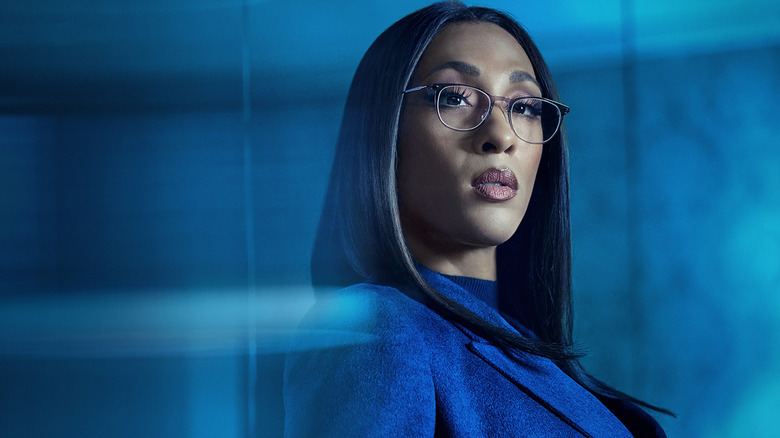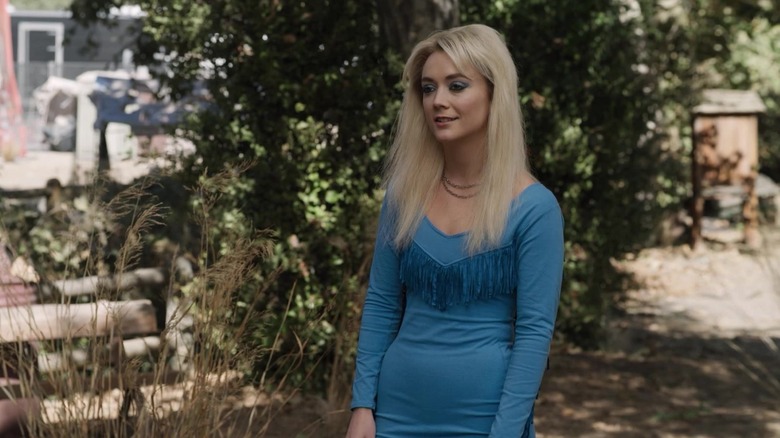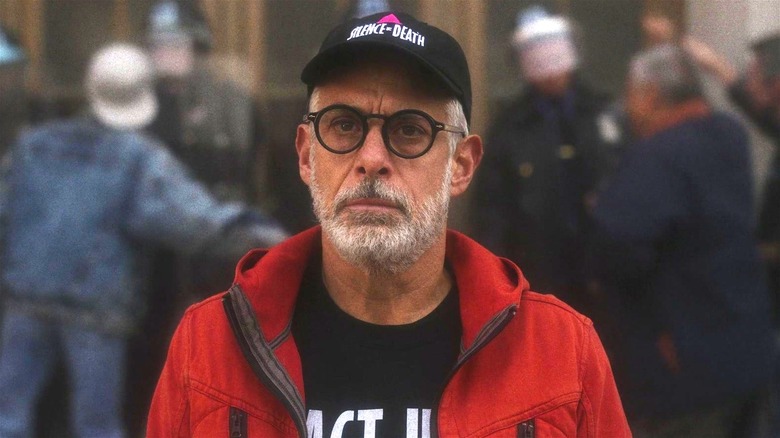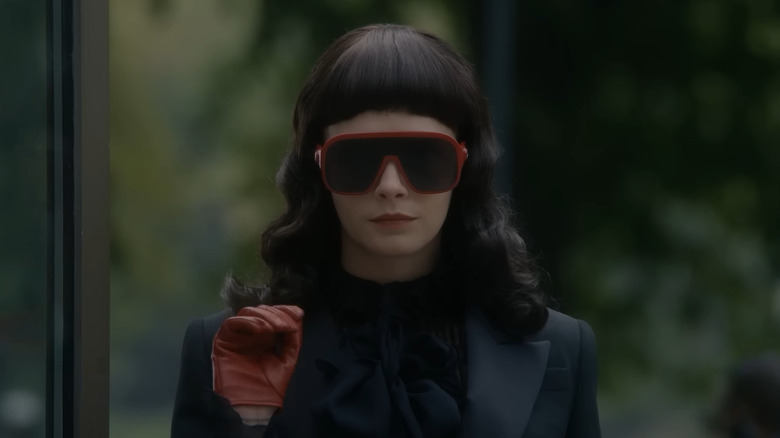AHS: Delicate Rips Apart The AHS Formula & It Could Save The Show
Notorious showrunner Ryan Murphy, of "Nip/Tuck" and "Glee" fame, has made a name for himself on some of the most outlandish and — no pun intended — gleeful programs on network and cable television. Whether it be sadistic plastic surgeons in Los Angeles or saccharine teenagers in Ohio, Murphy's brand speaks for itself. His talent for creating some of the campiest, most gasp-inducing visuals on television has drawn fans to their screens for the past two decades. Murphy's narratives fly from the seat of their pants, take chances, and are often unpredictable.
This same method can also be a double-edged sword.
"American Horror Story," for all its unapologetic pleasure of the macabre and delightful recurring character actors, isn't the most cohesive of shows. Even the best "AHS" seasons, such as "Murder House," seems to falter in their later episodes, with left turns so sharp that viewers get whiplash.
Maybe the newest "AHS" surprise is the one that turns this all around, however. Because Season 12, "Delicate," will do something unprecedented — in that it is the first season not originally spawned from Murphy's brain. Instead, the current season will be adapted from the Danielle Valentine book "Delicate Condition," a modern "Rosemary's Baby" about the anxieties and horror that can accompany pregnancy. Frequent "American Horror Story" actor Emma Roberts returns to the fold as Anna Victoria Alcott, a Hollywood starlet who sets her eyes on motherhood, and she may be leading a revolution that will change the show forever — and perhaps save "AHS" from its current death spiral.
AHS has always flown from the seat of its pants ... to diminishing returns
The main attraction of any "American Horror Story" season always boils down to its subject matter. Witches, slasher films, and asylums are all subjects that come with historical horror. But no matter how strong the concept is, there are times when seemingly ever season inevitably crumbles under the weight of either its subject matter or the random subplots that Ryan Murphy shoves in out of nowhere (such as, uh, why did "Asylum" have aliens, again?).
Stuffed to the gills with so much horrific content, "AHS" seasons run out of gas in their later episodes. And time and time again, the series employs the use of time jumps when it seems it has run out of story to tell. For instance, the beauty of "1984" was how much the story seemed to appreciate and honor the slasher films of the era. But instead of staying in the golden age of camp, the season decides to bridge the gap between the 1980s and the modern day. This takes the wind out of the sails, turning "1984" into a rehashing of "Asylum," wherein Lana (Sarah Paulson) escapes her torment at Briarcliff, then goes on to write a book only to realize the evil she bore within its walls comes back to haunt everyone in the present day. "Double Feature" is the real curse thrust upon the "American Horror Story" brand. Unable to keep a storyline going for a full 12 episodes, the season is cut in half, telling two different stories.
There's no questioning the success of "AHS." There's also no questioning that every season comes with caveats, or subplots and characters you have to ignore. Adapting Season 12 from a novel could be the solution.
Previous AHS seasons hint at the greatness that a roadmap could provide for Delicate
"American Horror Story" isn't in the business of shying away from real-life inspiration. The titular Cortez Hotel and Roanoke all have ties to real-life hauntings. But when the series doesn't just take inspiration but actually depicts horrors, it truly shines. Season 11, "NYC" was the culmination of some of the best seasons of "American Horror Story." Unlike "Cult," which portrays an outrageous fever dream of the 2016 election, "NYC" is much more careful with what it demonstrates. Taking place in the harrowing time in New York during the AIDS epidemic, the season could have gone very wrong, but instead of the typical sensationalizing found in previous seasons, the season understood its responsibility, and dealt with the subject matter respectfully.
"NYC" is one of the most careful and personal seasons. The supposed villain, Big Daddy, isn't a literal character, but a personification of the disease. "NYC" takes liberties, but is true to the feeling of the time.
What does this mean for "Delicate," then? Simple: "AHS" is better when it has guardrails. And adapting a novel means the story itself is already written, complete with characters and an ending, even if the show deviates at times. Adapting Season 12 from a linear book could be the next step in the "NYC" type of storytelling. If this newest iteration of "American Horror Story" can stick true to the source material, it could be one of the best seasons yet.
AHS: Delicate needs to stick to the source material
Adapting a singular story could be the miracle salve that "American Horror Story" desperately needs.
At its worst, the anthology series is tangential and has a habit of getting carried away with itself. Again, did "Asylum" really need an alien subplot? Not really. Interesting concepts on their own do not a strong season make. "AHS" always has shined with its visuals, style, and acting — but the narrative itself needs the strength of vision and cohesion that a preexisting book can bring. And not just any book. A book written from a female perspective about the horrors of pregnancy is unlike anything that "American Horror Story" has done before. Just as "NYC" did well with stories from the perspective of the LGBTQ+ community during the AIDS crisis, "Delicate" can find success in a significant personal experience.
Author Danielle Valentine told People that the germination for her book came from her own experience with a miscarriage and that she was, in her words, "Shocked by how difficult miscarriage was, both mentally and physically, not to mention how difficult a perfectly average pregnancy could be."
This perspective is so specialized that it would be in poor taste for Murphy to be creatively in charge. To Murphy's credit, and in an impressive amount of tact for "American Horror Story," this season will instead be helmed by Halley Feiffer. Murphy confided in The Hollywood Reporter that he supports the writer's talent and how she crafted the characters for the season. With all of these elements coming together, this could be just the season to bring "American Horror Story" back to the hearts of morose television lovers everywhere.



